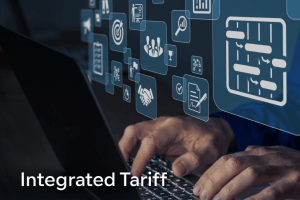Small, medium, and large businesses use e-invoices due to their enthusiasm for the advantages that digitization of invoices brings.
We invite you to read this article to discover the most important advantages of using e-invoicing for businesses.
Digitization is becoming more and more involved in our daily lives, both personal and professional: mail is being replaced by email. E-commerce shopping, paper books with e-books.
The advent of digital technology has thus dematerialized many practices; invoicing is no exception to the rule.
It’s more practical, more economical, and more environmentally friendly, so digitizing invoices offers many advantages.
In this article, we will discuss the top 11 unique features of the electronic invoice system.
What is an e-invoice?
It is an invoice that is issued, sent, and received in an electronic format through an organized structured data exchange, so the entire billing process must be executed electronically.
It’s not enough just to scan your paper invoice in digital format, because in this case, it’s not an electronic invoice but an immaterial invoice.
How to send an e-invoice?
Electronic invoices can generally be sent in three different ways:
- Through your ERP system, if this supports the type of electronic invoice you wish to send.
- Through an online invoice form, where you enter the information and send the invoice to the customer manually.
- Through a service provider that helps you send your invoices.
How to make an electronic invoice?
E-invoices contain the same “regular” invoicing information, including information about the recipient, sender, invoice number, invoice date, VAT number for your company, and of course details of the item or service you sold.
Read more: Electronic Invoice in Saudi Arabia: A Simplified Guide.
11 advantages to switch to e-invoicing.
There are a lot of advantages and benefits to switching from the traditional paper invoice to the electronic invoice. Here are the top 11 advantages and benefits of switching to this system:
1- More efficient processes and higher compliance
The transition to the e-invoice system ensures more efficient and transparent processes in processing your invoices and thus better compliance with legal requirements. The Zakat, Tax, and Customs Authority plans to implement the electronic customs system in two phases.
(The first phase started in December 2021, and the second phase started on January 1, 2023.)
2- Lower financial costs.
E-invoices are considered to have lower costs and a faster return on investment; with the shift to electronic invoices, you get rid of 60 to 80% of the processing costs per invoice, eliminating the need for printing, postal fees, material archiving, etc. for the company.
Therefore, one of the most important advantages of switching to electronic invoicing is the guarantee of reducing the administrative costs associated with issuing invoices and processing them in “paper” form.
According to KPMG’s report, switching to immaterial invoices saves €3.24 per invoice sent, and €5.77 per invoice received.
3- More security and traceability.
You don’t have to worry about the risk of missing out on your invoices, because everyone knows who issues the invoice, when and for whom, for the customer.
It is the possibility to access his invoices, at any time, by email or thanks to a secure personal space.
Electronic invoices give users more security by ensuring a secure exchange of all invoices.
4- Better cash flow.
This new method of invoicing ensures better liquidity in exchanges and improved payment times.
Prompt delivery of invoices shortens payment time and thus improves cash flow and the opportunity to reduce the risk of real financial difficulties for businesses.
5- Full transparency and fast booking.
Automated processing of incoming invoices with workflow-based approvals ensures complete transparency and faster invoice reservations.
6- Reduce burdens.
Electronic invoicing solutions help reduce administrative burdens, reduce payment times, and increase productivity resulting from the dematerialization of these transactions.
7- Save time.
One of the important features of the electronic invoicing system is that it saves the customer’s time, which makes it easier for you to deal with him, and gives you an advantage over your competitors who cannot provide the same service.
You don’t need to spend resources and time on complex support processes like accounting. The recipient, in turn, is exempt from processing the manually received invoice, where invoice data can be automatically transferred to the ERP system/accounting system.
8- Reduce input errors
With continuous automation of the billing process and the elimination of manual intervention, input errors are minimized.
9- Simplify archiving.
According to legal regulations, companies must store invoices for future audits by tax authorities.
The length of time varies from state to state (usually between 5 and 10 years).
Paper bills are generally not well suited for long-term storage.
Damage from fire or water to the archive is likely to result in the loss of archived bills.
If an electronic invoice is sent, the invoice data is already available in electronic form and can therefore be easily integrated into the electronic archiving system.
10- Reduce risk
Increased clarity in trade and transactions means reduced risk of invoice fraud and human error. and so on.
Organizations can save countless hours and resources in the time it takes for mutual verification and due diligence when there is an effective system that leaves little room for such risks, which is what an electronic invoicing system achieves.
11- Eco-friendly transformation
Environmental transformation is taking an increasingly important place in our society, and we cannot ignore this unique feature of electronic invoicing transformation.
A survey by Human and Green Consultants for Bonial in particular tells us that a printed A4 sheet generates the equivalent of 10.22 grams of carbon dioxide while reading a page on a mobile phone requires only 0.72 grams, which is 14 times less!
The conclusion.
The e-invoice has become one of the most strategic steps businesses take towards digitizing their transactions.
It is increasingly popular internationally in the business community to gradually replace the old paper invoice with the newer PDF invoice.
Due to government regulations, companies are increasingly obliged to create and send their invoices electronically.
Uniquely, the integrated cloud accounting system “Qoyod” handles almost all the necessary work to allow you to trade structured electronic documents with your business partners.
The Qoyod system provides all its customers with the advantage of electronic invoices without the need to request activation or pay additional fees.
Learn more about Qoyod solutions and how we can help you experience the benefits of e-invoicing.
Try Qoyod for free for 14 days now!




